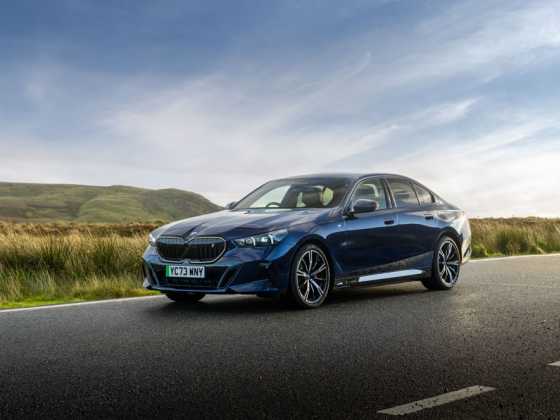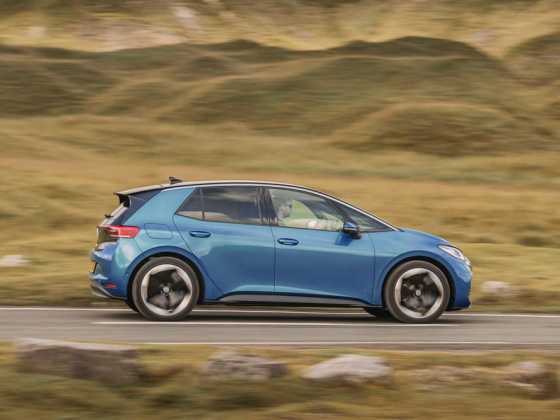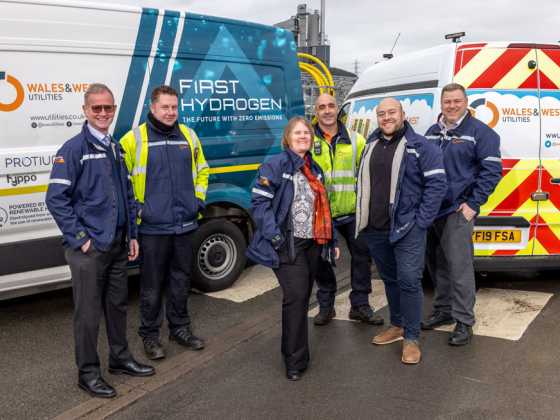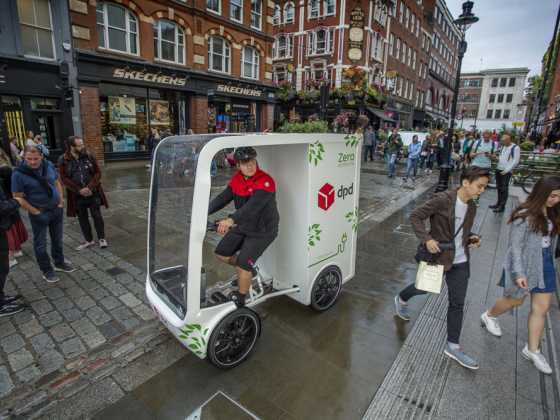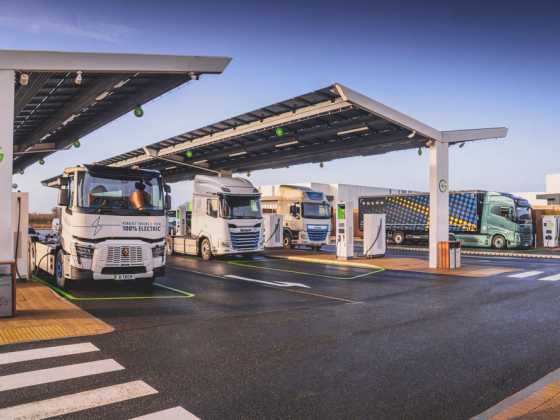Mission zero-emission
BMW Group’s fleet boss Stephen Chater shares his holistic vision of future, zero-emission mobility
 Rather than advocating just one type of technology, BMW Group realises everyone’s transport needs are different and that no one technology will fit everyone. A flick through BMW Group’s EfficientDynamics portfolio shows just how diverse their vehicles are. Hybrids, pure electric, plug in hybrids and range extender vehicles of all shapes and sizes sit comfortably alongside traditional, yet frugal diesel and petrol engines. “All these different transmissions and power trains come under our Efficient Dynamics banner, which is the umbrella term for our whole approach to ultimately sustainable mobility,” explains Stephen Chater, BMW Group’s corporate operations manager. “We’ve taken a holistic approach, understanding that no one mobility solution will meet everyone’s needs.”
Rather than advocating just one type of technology, BMW Group realises everyone’s transport needs are different and that no one technology will fit everyone. A flick through BMW Group’s EfficientDynamics portfolio shows just how diverse their vehicles are. Hybrids, pure electric, plug in hybrids and range extender vehicles of all shapes and sizes sit comfortably alongside traditional, yet frugal diesel and petrol engines. “All these different transmissions and power trains come under our Efficient Dynamics banner, which is the umbrella term for our whole approach to ultimately sustainable mobility,” explains Stephen Chater, BMW Group’s corporate operations manager. “We’ve taken a holistic approach, understanding that no one mobility solution will meet everyone’s needs.”
Born Electric
A key car within BMW Group’s overall EfficientDynamics development and strategy is the i3, due to be launched later this year. A fully-electric, premium quality car, its design is based on the results from two intensive trials – the MINI E and Active E – which saw 1,000 people in ten countries evaluate electric cars in the real world.
In today’s emission-conscious society, electric vehicles are no longer a stranger to the roads. So what will make the i3 different from other electric vehicles on the market? Chater explains: “Many of the electric cars on the market are conventional designs that have been converted so you still have constraints in terms of weight, which starts to impact on performance and range. The i3 will have a revolutionary new vehicle architecture with lightweight materials such as aluminum and carbon fibre reinforced plastic – used for the first time in automotive production. This will give a much lighter base level so even when you add in your battery and motor the overall weight is still considerably less than the conventional car in the case of the i3, almost 25 per cent less than the Nissan Leaf.
The car has imaginative new technology that will maximize range. Anyone that’s ever driven an electric vehicle in the winter will know that the battery, and therefore range, can be hampered by the cold. The i3 therefore is due to have an intelligent heating and cooling system to keep the battery at an optimal operating temperature as well as the ability to heat and cool the cabin before setting off. It has other clever wizardry too, like navigation which can work out hill gradients on the route to give an even more realistic range expectation and live availability of charging stations.
For those who need additional reassurance, the i3 will also be offered with a range extender which can provide double the range, kicking in if the state of battery charge reaches a low level. “And of course you still retain the premium quality, dynamic and enjoyable drive you’d expect from a BMW,” adds Chater.
Beyond A to B
BMW Group realises that getting you from A to B with reduced emissions may require more than one mode of transport. Through the i3’s connected drive platform, you could work out a route that would enable you to drive an electric car to a city where there’s a charge point, for example, and get the train for the remainder of the journey. And upon your return, the car would be fully charged. “We believe in the future you shouldn’t be constrained to one mode of transport,” says Chater. “The use of smart technologies can really help people get the most out of overall mobility solutions.”
Internal Combustion Engine
But for the foreseeable future, BMW Group sees the internal combustion engine as the main vehicle choice for fleets and consumers and believes there’s a lot further the company can go in terms of achieving even greater fuel efficiency. So what’s up their sleeve for traditional diesel and petrol engines? The BMW lab techies are continuously laboring over new technologies for greener motoring. But it’s no easy task. Chater puts it in perspective: “To save just 1g/km of CO2 emissions you’ve got to make a weight saving in the region of 30kg which is becoming increasingly difficult as consumers demand higher specs and more product substance. So you’ve got to innovate. New features such as Aero-curtains and Air breathers, which reduce the drag around the wheels for better aerodynamics, can result in improvements of between 1-3g/km.”
BMW Group has already got over 300 models under 160g/km CO2 emissions and 57 below 120g/km appealing to a broad range of customers. Arguably its flagship car within the EfficientDynamics range, the 320d Saloon is a premium, high performance car with a super-efficient engine, and the latest generation enjoys even greater improvements. Chater explains: “With the new 3 series we’ve built a bigger car given it a higher spec with better and stronger performance – but we have maintained the impressive emission level at 109g/km and fuel consumption at 68.9mpg even with automatic transmission.”
The BMW range now comes with an option to select ECO PRO driving mode, this can reduce fuel consumption by up to 20 per cent. The intelligent system tells you if you’re accelerating too aggressively and for maximum energy efficiency, automatic transmissions will shift even faster in higher gears and automatic air conditioning will be subject to energy-optimised settings.
It’s not just tailpipe emissions that BMW Group are concerned with either. “We have stringent carbon emission targets for the whole well-to-wheel value chain. Whether it’s our hydro-powered station for carbon fibre, or wind-power for our Leipzig BMW i vehicle plant, as a company we aim to operate in the greenest possible way.” And the proof is in the pudding: for eight years running, BMW Group has been listed as the world‘s most sustainable automobile manufacturer on the Dow Jones Sustainability Index and is even about to improve on its own benchmarks.
Fleet Appeal
Year after year, BMW Group’s trophy cabinet gets fuller and fuller with fleet awards, including GreenFleet’s own Fleet Car Manufacturer of the Year award for five years running. These awards are testament to the manufacturer’s sustained success within the fleet and business car segment. So what’s the strategy behind this great achievement? “It’s a combination of factors,” says Chater. “The product itself is very appealing, with compelling performance and engine efficiency. And critically for the fleet sector, our products are reliable – we have recently been voted as producing the most reliable company cars in the UK, according to a survey of the 50 largest contract hire and leasing companies. And together with MINI, we have such a broad range of products which appeals to a wide number of organisations.”
Continuing to focus on the customer is another key factor to its fleet success, says Chater. At the end of last year, BMW launched a new Aftersales Corporate Charter which is a list of 10 key customer commitments with the aim of further strengthening the relationship between leasing companies in the UK and the BMW dealer network. The charter covers everything from collection and delivery during service, to the disposal of parts, ensuring that every customer gets a consistent level of service. “The Corporate Charter is really about setting out expectations and standards in the service that we will provide to corporate customers. We listen and work with clients to really meet their business needs and that is something I am passionate about,” concludes Chater.
Further information
www.bmwcorporate.co.uk
www.bmw-i.co.uk

